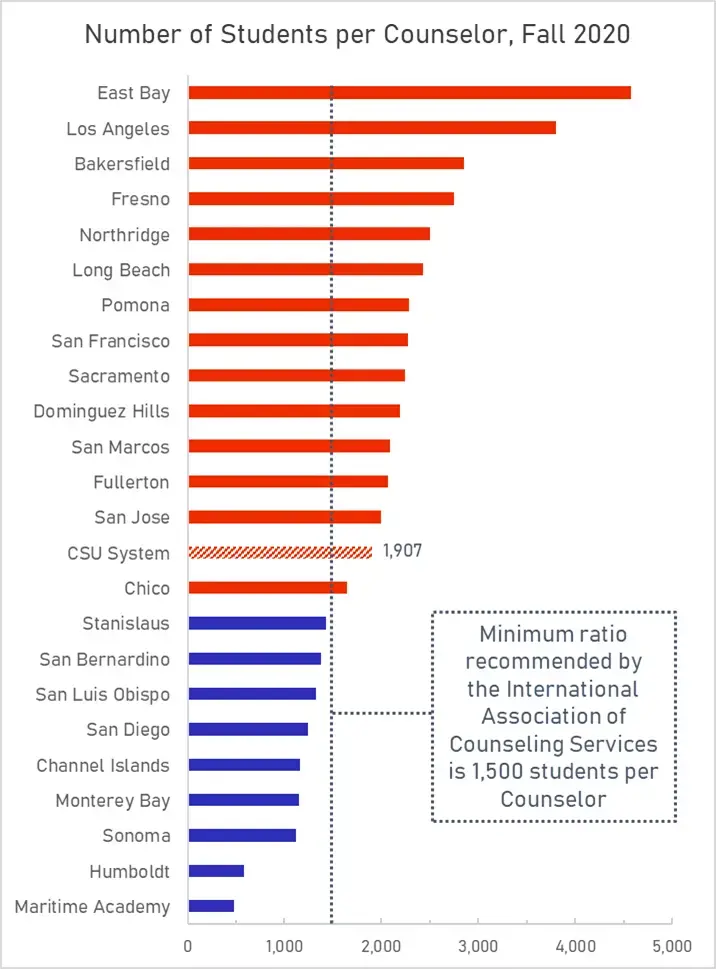‘Disrespectful’: CSU Management’s Refusal to Move on Fair Salary, Article Proposals Abhorrent as Bargaining Continues
CFA members and CSU management remain far apart on salary, workload, and many of our anti-racism and social justice contract proposals.
Despite 18 months of negotiations, the CSU continually refuses to thoughtfully consider and move on major article and salary proposals from the CFA Bargaining Team.
It’s the one consistency so far from management.
Last week, CFA members and management met twice to further negotiate on a new contract, which – after several extensions – is set to expire at the end of September.
‘They have the money.’
During negotiations, CFA presented a deeper dive into the CSU’s budget to further demonstrate the CSU’s ability to afford our fair salary proposals.
The CSU’s own data from their financial transparency portal shows explicitly that the university system received significant COVID-19 relief dollars, saw an exponential increase in state funding – historic by the chancellor’s own recognition – and university revenue regularly exceeds expenses.
Additionally, the CSU’s spending on instruction has declined in recent years, with money funneling into heavily padded investment accounts.
“During our bargaining with management, not once have they said they do not have the money to fairly compensate us for our extraordinary work during this global pandemic,” said Charles Toombs, CFA President. “We know they have the money. Period. The chancellor has called the budget to the CSU ‘historic’. Reserves for the CSU system are also at an historic high. Plus, the CSU received large sums of COVID-19 relief funds. But management continues to show us as faculty that they have other priorities for using this historic money, which includes pay raises for high-paid administrators.”
As we reported out weeks ago, the cost for a three-year, four percent general salary raise is $270 million over three years – or $90 million a year — based on the CSU’s own salary calculations.
CFA member leaders serving on the bargaining team also proposed two years of 2.65 percent service salary increases (SSIs) and post promotion increases (PPIs), as well as a commitment for the CSU to spend $20 million total to address salary inequity – primarily inversion and compression – that is exacerbated by lack of in-range salary progression. The cost for PPI raises for eligible faculty would be about $4.8 million a year. The cost for SSI raises for eligible faculty would be about the same cost as a one percent GSI, or $22 million per year.
The CSU continues to propose an increase in parking fees. In some cases, this proposed fee would total more than the two percent salary increase the CSU has proposed.
The two proposals together could amount to a pay cut for some of our faculty.
“We demand that the CSU honor and respect our work and agree to CFA’s salary proposal. It is the moral choice to make,” said Toombs.
‘Something clearly wrong’ but no movement on counselor workload.
Like with salary, CFA members presented data on counselor workload.
The International Association of Counseling Services recommends the minimum ratio of counselor to students as 1,500 students to one counselor. Despite this fact, 15 of the 23 CSU campuses maintain ratios much higher than IACS recommendations.
Systemwide, the student to counselor ratio is 1,907:1, translating to overworked counselors, an inability for students to access needed care, and an urgency for the CSU to pass CFA’s counselor workload proposal. This becomes especially true as more students and faculty return to campuses after an extremely trying year of coping with one of the world’s worst health crises, economic disruption, and anti-Black and anti-Asian racial trauma, as well.

“Management’s lack of interest in understanding the scope of counselor faculty work and the need to ensure a reasonable and ethical workload is truly stunning,” said Carrie Sakai, CFA Bargaining Team member and recently retired counselor at San Diego State. “Providing effective and professional mental health services entails so much more than just the time spent face to face with individual students in the therapy room. Counselor faculty are responsible for treatment planning, record keeping, clinical consultations, and required ongoing training to maintain licensure.
“We meet needs on our campuses in a myriad of creative ways including crisis intervention, outreach and support to underserved students, consultation and collaboration with other departments, faculty members and the broader community – the list goes on.”
This issue has been known by CSU management and advocated for by CFA for years – and management could not help but admit something was “clearly wrong” at their campuses in response to CFA’s presentation.
“Counselor faculty work is crucial to the health and success of our students,” said Sakai. “Management’s disinterest in understanding what it is to be counselor faculty in the CSU is discouraging. Management refuses to support reasonable and ethical workload protections consistent with best practices in the field is deeply demoralizing.”
‘Actions speak louder than words’ on the CSU’s commitment to anti-racism reforms.
Despite a year-and-a-half of negotiations, management has not made any movement on any anti-racism and social justice (ARSJ) reforms.

It touts publicly its willingness for systemic change, yet privately will not and willfully refuses to meet the moment to care for its faculty and students.
Regarding adding a parental leave option, management is currently leaving our caregiving and parental faculty early in their careers (who have not built-up sick leave) without a paid parental leave option.
They are refusing to take action as the pandemic continues despite billions in their coffers and the examples of other university systems across the country offering respectful parental leave for their faculty.
CFA member leaders believe faculty have a right to come to work without fear of being over-policed; yet, the CSU continues to reject and has shown no willingness to work with us on the team’s health and safety proposal to offer alternatives to campus police for non-criminal matters.
The CSU also wants to limit the FERP program, presenting a racial justice issue and a general faculty rights issue.
For years, a mostly white faculty base has been able to access this benefit. Just as our faculty has become more diverse, the next cohort of retired faculty would see this benefit greatly reduced under the CSU’s proposal.
This faculty brings with them student debt and the burdens of building generational wealth and may not be able to fully retire in the same way that faculty of earlier generations could.
“Management has rejected all of our ARSJ demands. They speak a good game, but their actions speak louder than their words. They are telling us who they are, and we believe them,” said Chris Brown, CFA Associate Vice President, South, and member of the CFA Bargaining Team. “The fact that there’s not one person of color on their bargaining team speaks volumes. The Chancellor’s team and their whiteness, combined with their unwillingness to take seriously the real lived experiences of BIPOC faculty and the importance of our ARSJ demands is very disrespectful.
“This is the People’s University, and we are going to fight to keep it that way.”
An additional priority proposal is the currently named Exceptional Service to Students award.
When presenting the proposal during last week’s discussions, management made it clear they do not believe faculty are sought out by students based on their identities.
Management proposed maintaining funding for the program at the same level it was in 2014, and, again, rejected renaming the awards to the accurate name of “cultural taxation”.
Cultural taxation is the unique burden of extra work underrepresented faculty and staff of color take on by being highly sought-after advisors and mentors for our diverse student body, and by being the ethnic representation on university committees and serving as unofficial diversity consultants on campus.
“For CSU management to deny equity that is needed is a sign of disrespect. What we are organizing and fighting for is respect for women, LGBTQIA+, and BIPOC faculty who deserve this Exceptional Service to Students award to address the cultural taxation placed upon them for their service to their students and their campuses across the CSU system,” said Margarita Berta-Ávila, CFA Associate Vice President, North, and CFA Bargaining Team member. “This is a daily service that goes above and beyond the contract faculty sign with their respective campuses in order to meet the needs of their students.”
Real life examples have been provided to the CSU for months, including how dedicated white faculty would and do access this award. Despite these facts, the CSU has shown no concern over fairly compensating overworked and culturally taxed faculty.
“To negate that this is a cultural taxation is really management trying to perpetuate a colorblind frame and perpetuate institutionalized racism via policies and structures that we must revamp to address these inequities,” said Berta-Ávila.
CFA member leaders and CSU management will meet again on Thursday to further discuss these issues and see if any progress can be made.
Join California Faculty Association
Join thousands of instructional faculty, librarians, counselors, and coaches to protect academic freedom, faculty rights, safe workplaces, higher education, student learning, and fight for racial and social justice.